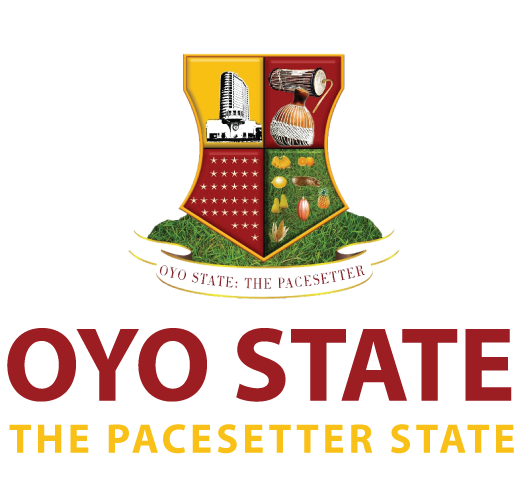In this Interview, the CEO of Waterfield Luxury Hotel, Bashorun Estate, Akobo, Ibadan, Mr . Hamid Ismail explained how he rose from being a Clerk at the Central Bank of Nigeria CBN to the position of Director; his choice of Ibadan for business and his view on the Nigerian Economy.

Can we meet you sir?
Mr. Ismail: My name is Hamid Ismail, I am looking forward to my 62nd birthday, I used to work at the Central Bank of Nigeria CBN and I retired in 2016. Around 2010 or so, I had to think of what to retire on knowingfully well that I need to lay my hands on something when I retire from service, and what came to my mind among so many options was to set up a hotel.
I had always thought of where I would be going when I retire from service, if one does not engage himself, one would either be sleeping at home once you have nowhere to go, or going to beer parlour and golf club. What came to my mind was to setup a hotel, and I should be able to employ some people that would be paid salaries and that give me joy and fun. As you can see, this week, I am already planning to pay my workers. I was in Abuja, but I felt that the best place to come and establish my business is Ibadan, some of my friends had wanted me stay in Abuja but I refused to oblige due to my love for Ibadan.

Q. What was your Interest for choosing Ibadan as your place of establishment? Was the development of Ibadan your major concern?
Mr Ismail: Thank you very much, like I said, Ibadan is my native land, my place of birth, where I grew up and had both primary and secondary school. Beyond that, Ibadan is a place to be.
Firstly, when you are at home, you are at peace with yourself. My relatives and friends are here in Ibadan and I can easily reach out to them in Ibadan. As a matter of fact, I was in Ilorin for about 20years, but it wasn’t my place of birth. So, I felt I should come and invest in Ibadan and do a little for what the city has done for me because I owe Ibadan a lot.
Q. How best can you describe your youthful days, what was the struggle like for survival before you got employed?
Mr Ismail: Our youth days were fun. I started school in 1966, then in 1970, I got into bad influence and I said I wasn’t going to school again and I went to join my uncle who owned a grinding machine for yam flour at Orita Merin and I used to follow him to shop regularly. In 1972, I changed my mind that I would go back to school, then I was taken to another school at Ebenezer Primary School and that was where I finished primary school. The thing about this is that, from our ancestral home at Oje Igosun, Ile Ayegbede, I used to walk to Agodi Gate, I would have to trek to school and it was fun as we didn’t see it as suffering and may be because everybody was doing it at that time. I later joined my uncle at Oketedo, though he’s late now, it was still trekking from Gbenla to Igbo Agala, to Oke Padi, the same thing when coming back. So, it was fun and we didn’t see it as a suffering, it was just a normal way of life.
There was competition then, and that was one of the things that drove me back to school, I was seeing some of my contemporaries going to school. So, I decided to return to school and was enrolled at Igbo-Elerin Grammar School where I finished my secondary school.
My elder brother, he’s still in Ilorin now, he was working with Nigeria Herald Newspaper then. In 1980, I went to join him and stayed with him. That same 1980 I joined ilorin Agric Development as a Sales Clerk, from there I joined Central Bank of Nigeria.
Q. Which year exactly you joined the service of CBN?
Mr Ismail: I joined in July 1981. I have already been given admission to UNILORIN then to study Bio-Chemistry and I met one Electrical Engineer who changed my orientation and said to me that the opportunity Bio-Chemistry as course could likely give me is teaching. I am not saying that Bio-chemistry is not good, don’t get me wrong. He analyzed it and I reasoned along with him and that was early 1981. For that reason, when I got a job at CBN, I just forget about the University admission because I was to resume in October of 1981 in Unilorin. When I got to Central Bank, I took some professional exams, those exams were in parts, in the first six months, I had already finished first part. So, it made it easy for me to forget about Unilorin.
Q. Which Department did you start from at CBN?
Mr Ismail: I started from Treasury Department and later moved to Currency Department. They were not known as Department, they were known as Offices and my salary then as a Clerk was N96.
Q. Which qualification got you employment at CBN in 1980?
Mr Ismail: Good. You know, CBN has its own policy, which I think it is still in practice. As a Clerk then, you either come in using grade one which was around 16points. In my own case, I had grade two which was around 22points or so, that was what made CBN employed me, nothing more than that.
Q. How can you access the mode of employment as at the time you were employed and the present reality, after 35 years in the system, has anything changed?
Mr Ismail: The system is now an unfortunate one, it’s not only about CBN. When I was in the system, the procedure for employment was very clear and the department in charge of employment would have to identify vacancies in all the departments before they invite public to fill the vacancies. At some point, they gave the work out to Consultant, it was the Consultant that would put advert out, screen people and send shortlisted names to the CBN, after which CBN would conduct Interview and once you pass the interview you would be employed.
Q. Going back to the hotel business how has been the patronage?
Mr Ismail: The business is just about a year, just like the normal business, it’s still coming up; people are getting to know it. We are working everyday to improve our services and serve our customers better. Basically, we render accommodation services, we have a small hall for general meetings, board meeting, birthday party, small get-together, and we have open field for event.
Q. Can we know about the cost implications of these rooms?
Mr Ismail: Our rooms are in four categories. We have single room; single luxury; executive luxury & suites (2 set). N20,000; N22,500; N28,000 & N30,000; N40,000 respectively.
Q. What can you say about the current state of Nigerian economy as it relates to hotel business and others?
Mr. Ismail: Well, you know hotel business is for those who have the need to come and stay in your hotel, if they don’t have the need they won’t come. No matter how the state of the economy, you would find people who have one event or the other like those who want to celebrate weddings or birthday party.
Despite the harsh economy, people still embark on wedding, naming and burial ceremonies. So, you would still find those who have the need to use a hotel. I agreed that the economy is tough, but some people are still surviving. I don’t subscribe to people saying Nigeria is bad, those who complain every time have nothing to offer too, in your own little way, think of what you can do to better the lives of the people.
Just last week I was walking round this street, and I noticed that about 15 different construction works are ongoing, and with the way they are working on those sites, it shows they want to finish it as soon as possible, what that tells you is that Nigeria is not that bad as people portray it. People are making money; just identify the area that’s good for you and turn it to opportunity.
Though, it can be tough, if I say everything is easy, I’m deceiving you, this hotel was supposed to start in 2017, remember I left CBN in 2016, I had planned that after collecting my gratuity, I would invest it in hotel. Shortly before I left, they started devaluing the currency and I had already ordered the importation of materials to use for the hotel from China. With the devaluation of the Naira, everything changed and that affected the valuation of the materials I had ordered to be imported. I did not give up and with resilience I was still able to put everything together. So, my advice is that, let us continue to see Nigeria as a viable project and it will be better for all of us, we can’t continue to be here and be cursing the country.
Q. What other Professional certificates did you acquire?
Mr Ismail: I finished ACIB, I did part one & part two which qualified me to be an Associate Banker and thereafter I went to do my MBA, but they were all part time courses. I did MBA at University of Ado Ekiti and would have to leave Abuja every Friday evening to Ado Ekiti or Ilorin for classes and that was part of the struggle then, it was a very big risk. Sometimes, I would travel from Abuja to Ilorin and I would be dozing while driving and had to just park the car by the roadside. 30 minutes thereafter I would continue the journey. Looking back to my journey so far, I say Alihamdulilahi. I had ACIB, HND Banking & Finance, MBA.
Q. Being one of the stakeholders in Ibadan, what is your opinion regarding the chieftaincy Issues in the city?
Mr Ismail: Concerning the Obaship, when Late Governor Ajimobi brought about his reformation, majority of us felt he didn’t do well. Like Senator Lanlehin said, “if something is not broken, why will you have to fix it”? That is Ibadan traditional arrangement; everybody acknowledged it, not just Ibadan. It’s the best; it doesn’t give room for struggle or fight. If God spares your life, once it’s your turn, it’s yours.
Some of my friends saw Ajimobi’s reform as a development but I felt it was needless. The one that was similar to it is Queen of England and at some point, you would know who would become the Queen. So, I felt the Governor then didn’t have to dabble into it as it would create problem. Some of the Olubadan- In-Council members fell into it for whatever reasons. Thank God, sanity has taken place now. I’m happy that High Chief Adewolu Ladoja was able to play maturity, if not, he would have further disorganized everything, and he has the power, means and the Court. One beautiful thing about Ibadan is that the citizens are always for Ibadan. For example, the Late Arisekola once said that anything he wants to put his hands on and he hears that it’s for Ibadan, he would have to leave it for the general interest of Ibadan.
It was not as if someone forced me to come and invest in Ibadan or for economic gains. I just felt that I should come and invest in my fatherland and that applies to everybody who wants the growth and development of Ibadan. I just hope that things get better so that upcoming ones can appreciate why we are doing all these.
Q. Nigeria was favourable to you during your youthful days, how can you compare your time with the present economic realities?
Mr Ismail: You’re right, most times, when I look at it, what I come to realize is that we are too many now, secondly, the people who are supposed to do things in a right way are not doing it, and that’s the major challenge we are facing today. It’s very easy to blame the President, Ministers and so on, but every Nigerian has a price, and that’s the unfortunate thing. What I mean is that, you can actually buy anyone in Nigeria.
I don’t know the possible best but every Nigerian would have to sit down and think of how best he /she can help the country. While at CBN, I was in Internal Audit Department for almost 20years, and what I saw was that most Nigerians would want to do wrong thing. For example, if they steal, they would now say that I don’t know that you would catch me, now that you have caught me, I would drop it, and that happens everywhere in Nigeria.
Also, I don’t think there can be revolution in Nigeria as some advocate, everyone is waiting for his turn and hoping that somehow, that turn would come at the appropriate time. That’s why corruption would be difficult to deal with because everyone is waiting for his turn to eat the national cake. Corruption has become cankerworm that is eating deep into the fabric of our nation.
Another Issue is about patriotism, I worked with some people, when you talk about Nigeria, they would say, what’s my business with Nigeria, if it like, Nigeria can collapse. Likewise, some would say whatever it takes, I would protect it. Let me give you an instance when I was working at CBN, there was one of CBN Governors then, I won’t mention his name. During his reign as CBN Governor, there was pressure on him that he should devalue the currency, he declined given simple economic reason. He said that the benefit of devaluing Naira is to make export cheaper, and he asked that “what are we exporting”? The West controls our economy and the commodity price is fixed at the global market as we don’t have control over it, he didn’t bow to the pressure, I was also watching him too. When he left, the man that came after him within six months started devaluing the Naira and everything started collapsing. It’s about how you perceive Nigeria.
Q. What’s your advice for the Youths?
Mr Ismail: Firstly, I would say that the youths should prepare themselves very well in whatever they do, they should be properly qualified in their chosen profession and continue with the struggle, it’s just a matter of time, it would get to your turn. Just do your best. I believe so much that things would be better.



